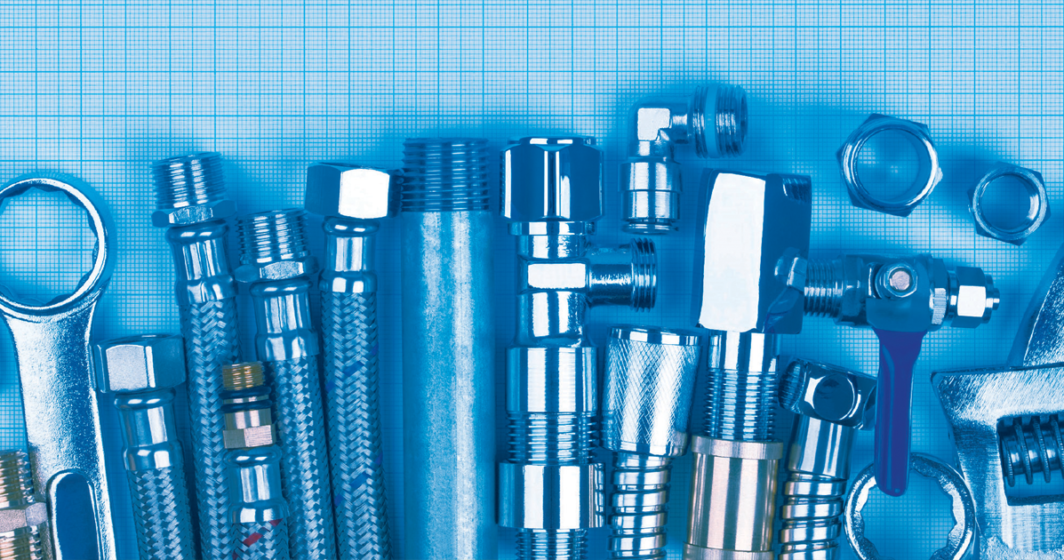There is a lot of doom around the economic impacts of COVID-19. The facts show there will be a small decline in revenue in the plumbing industry to 2025 and there will be growth. Kathryn Kernohan investigates.
The COVID-19 pandemic and deteriorating demand for household maintenance and repair will see a 4 per cent decline in revenue for the plumbing industry Australia-wide, according to IBISWorld’s latest report.
IBISWorld constantly monitor the industry impacts of current events in real-time and have released the Plumbing Services in Australia report. The report said the decline is also due to the downward trend in non-building infrastructure projects.

Together, these factors mean that overall industry revenue is forecast to decline slightly, at an annualised 0.2% to $17.3 billion, over the five years to 2025.
These predictions are aligned with a mid-year snapshot published by the Australian Bureau of Statistics, which found that 81,700 jobs in the construction sector had been lost between March and July. More than 50,000 of these were in Victoria and New South Wales.
“The plumbing services industry plays a crucial role in the Australian economy, and employs more than 65,000 people,” says Master Plumbers CEO Peter Daly.
“Like all industries, we have been impacted by COVID-19 and this report outlines a range of additional factors that have led to subdued revenue growth over the past five years.
“However, the plumbing services industry is essential and resilient, and we know that we will bounce back strongly with an expected improvement in household disposable income over the next five years and continued growth in the building construction market.”
The report outlines key external drivers that have contributed to recent downward trends, including significant competition for contracts in the single-unit housing construction market. Additionally, a decline in non-essential household spending has weakened demand for maintenance and repair services as well as the purchase of fixtures and appliances such as ovens, gas central heating systems, hot water systems and bathroom fittings.
It also explores the current and expected impact of COVID-19 on the industry, including a projected slump of investment in housing and non-residential building construction, which is forecast to reduce demand for plumbing installation work during 2020-21.
Approximately half of the industry’s revenue is derived from installing plumbing fixtures and fittings in new housing and non-residential buildings and as the report outlines, the pandemic is expected to discourage foreign investment in new projects and may diminish the capacity of local investors.
New residential building activity such as the installation of plumbing fixtures (bathtubs, showers and toilets) and drainage and the installation of appliances (hot water systems, dishwashers, gas heaters and ovens) has always been the primary source of demand for plumbing services.
The report warns that this reduced demand could lead to job losses and the closure of some firms.
In more positive news, there is a projected increased demand in the non-residential building construction sector, in line with records levels of industry activity over recent years.
Investment into new commercial and institutional buildings - like offices, retail stores, schools and hospitals - present continued opportunities for licensed plumbers to provide plumbing installation work.
With major casino, hotel and office construction projects nearing completion across the country, the report finds this will generate opportunities for some of the larger plumbing contractors.
The BCI Forecaster, a monthly indicator of construction contract values soon to hit the market, also paints a picture of cautious optimism.
The snapshot finds a 26% increase in the value of projects in the October to December quarter, in comparison to the previous July to September quarter.
This increase is attributed to the number of shovel-ready projects across the country, announced during the pandemic.
IBISWorld’s report also highlights that many smaller plumbing firms have diversified their service offerings over recent years due to subdued demand in the residential construction, renovation and repair markets.
This means some plumbers now offer specialised services like the installation of environmentally friendly solar hot water systems.
“The plumbing services industry faces some challenges over the coming years as we grapple with the impact of COVID-19 and the subsequent decline in new residential building projects and expected tightening of profit margins across the board. IBISWorld points to difficult trading conditions for most plumbing contractors in the short and medium-term” says Mr Daly.
“But there is reason for optimism. A projected increase in discretionary household spending over the next few years which may stimulate demand for plumbing renovation, maintenance and repair services on existing dwellings as well as Government investments into non-building infrastructure projects.”
IBISWorld identifies five key factors for success in the plumbing services industry:
- Ability to quickly adopt new technology
- Having a good reputation
- Ability to compete on tender
- Ability to change what market the firm operates in
- Ability to expand and curtail operations rapidly in line with market demands
Share this Article






